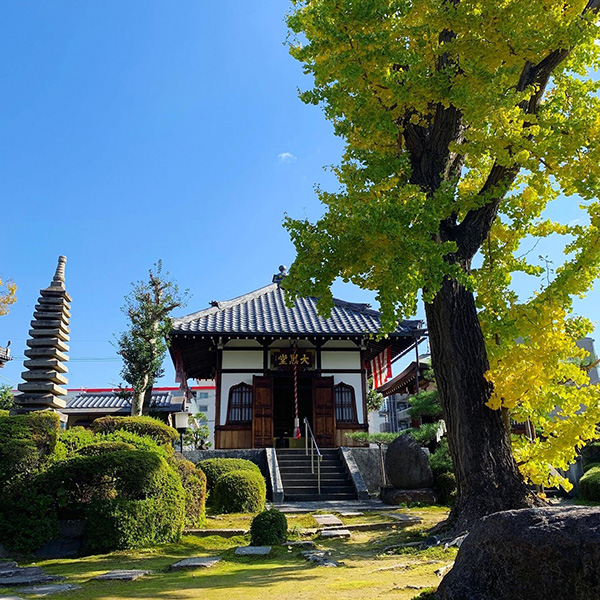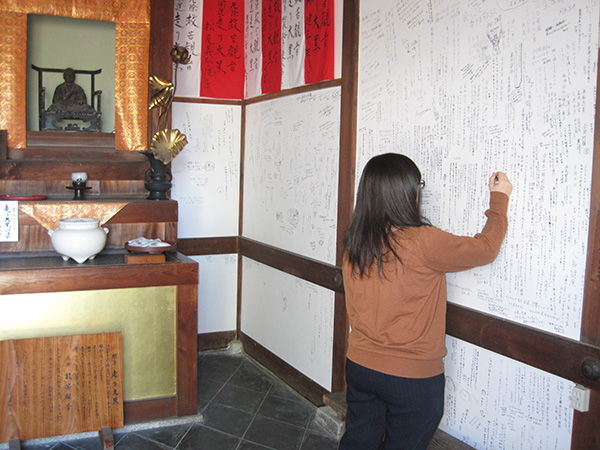Tanden’an Temple (Rakugakidera)
- Daikokudo Hall
- Rakugaki “Graffiti” Prayers
Tanden’an is a small Buddhist temple popularly known as Rakugakidera, “the graffiti temple.” When a
new hall was built to house the temple’s statue of the deity Daikokuten, it became tradition to write
wishes or prayers directly on the inside walls to help the deity see them better. This replaces the
more common practice of writing wishes on small wooden tablets called ema and hanging them
outside a shrine or temple hall. In late December, the monks repaint the interior in preparation for
the new year, when visitors can once again start writing on the white walls.
The origins of Tanden’an are unknown, but existing records show that it was reestablished in 1711 by
Zuio (1664–1734), a monk from the Myoshinji school of Rinzai Zen Buddhism. The temple was relocated
several times and eventually fell into disrepair in the early twentieth century. A newly appointed
chief abbot collected alms to revive the temple, which included building the new Daikokudo hall in
1957.
The small statue enshrined in the hall portrays Daikokuten, a god of wealth and one of the Seven Gods
of Fortune. The statue is called Hashiri Daikoku, “the running Daikokuten,” because the deity is
carved as if mid-stride. He carries a large sack on his back and a mallet in his hand, both
symbolizing prosperity. According to temple legend, the statue was made from a piece of the
kusunoki camphor tree that Kusunoki Masashige (1294?–1336), a prominent warrior and military
commander, donated to the nearby Iwashimizu Hachimangu Shrine in prayer for victory in battle.
In addition to Daikokudo, Tanden’an has a two-story main hall, which houses the principal object of
worship, a recent statue of Shakyamuni Buddha, as well as a statue of Kannon, the bodhisattva of
compassion, kept at the temple for more than 200 years. The Jizodo hall enshrines the bodhisattva
Jizo, the savior of all sentient beings, and several other small altars are placed in the temple’s
well-tended garden.
Tanden’an is open for visiting on Saturdays, Sundays, and New Year holidays. Group
visits are possible on weekdays with prior reservation by phone. Please note that inquiries are
accepted only in Japanese.



